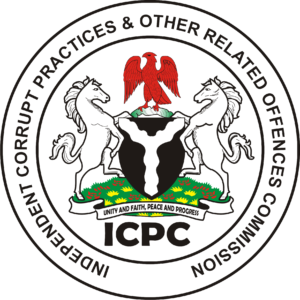Sexual harrasment is a menace in our society, this is why the Independent Corrupt Practices and other related offences Commission, ICPC, partnering with the Gender Mobile initiative have set up a special unit to tackle crimes of sexual harassment in Nigeria.

This was disclosed in a statement made by the ICPC Chairman, Prof. Bolaji Owasanoye at the national stakeholders’ engagement and presentation of draft model policies on sexual harassment in educational institutions in Abuja on Tuesday.
The chairman said at the event, that the program is aimed at engaging various stakeholders from civil societies, government and its agencies, public and private educational institutions at all levels to analyze draft policies on sexual harassment.
In hsi words, “The past three years have been peculiar for the education sector. The COVID-19 pandemic, resultant lockdown and forced adjustments in the academic calendar have all affected the sector in an unprecedented manner. The recent industrial actions by the Non-Academic Staff Union, Senior Staff Association of Nigerian Universities and Academic Staff Union of Nigeria only compounded the situation of students, especially those in tertiary institutions as public universities have been closed for the past seven months due to industrial action by academic staff.
“It would be a travesty of justice if students in schools who have weathered all the above storms finally resume only to become victims of another challenge; sexual harassment.”
Speaking at the function, the Executive Director of the Gender Mobile initiative, Barr. Omowunmi Ogunrotimi said “As we all know, the past few years have witnessed a global reckoning for perpetrators of sexual harassment, especially by abusers who wield significant power over the abused. While Nigerian tertiary institutions have become the center ports for power-driven gender-based violence and harassment, the challenge has not received the required corresponding level of attention.”
She continued, “We are not oblivious of the complexities of the systemic challenge we seek to address. We have all been working to nip sexual harassment in the bud before now. We know that different organizations are addressing different aspects of the problem. However, today, we have taken the bold step with the ICPC to leverage our comparative strength as a civil society organization and government to galvanize the ecosystem to achieve the desired systems change through policy engagement.”
“Given that Institutional demonstration of zero-tolerance to sexual harassment is measured by the ability to take complaints seriously, sanction perpetrators and protect victims from reprisals, this is contingent on the existence of comprehensive policies that provide definitional clarity, stipulate grievance redress mechanisms, put survivors at the center of prevention and response efforts and guarantee the physical and academic security of victims/targets.”


